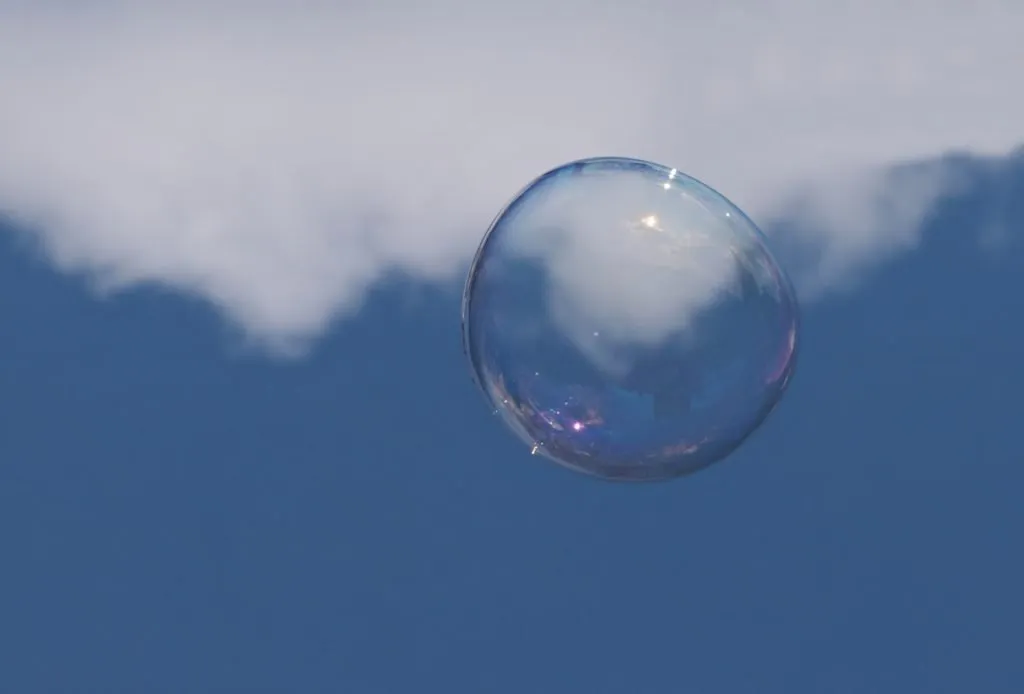
This week’s word for the Drop in the Ocean show on the @buddyup Discord is “lucidity”. It’s not a word which is used a lot in every day speech. In fact, it is rarely used in conversations I listen to. Lucidity is a clearness of thought or style, an ability to express ones thoughts with the clarity which allows others to perceive the truth immediately.
Ever play with blowing soap bubbles into the air? When they are first released there is total clarity through the bubble. Give it just a few moments and some colour and swirls start to show as the bubble morphs through the air.
My thoughts are often like that, they start out so crystal clear and then I give it just a bit more thought to flesh out how to express them — and damn — there comes swirls to change the colour of the thought. Those swirls can either add to the thoughts and make them clearer or just cloud them to the point even I can’t find any lucidity in them.
In exploring Google for ideas on how to use lucidity, I found one of the more common search results was about lucid dreaming. I’ll have to admit, my relationship with dreams of any sort has never really been good. So, it was with some reluctance that I decide to explore the concept of lucid dreaming.
I’ve heard the term ‘lucid dreaming’ and always thought of it as New Age loosey goosey stuff that folks like to subscribe to cause it makes them feel in control. And anyone knows, there is no control over dreams.
That last statement was my moment of clarity when it came to the subject. Then the soap bubble started getting real cloudy. My lucidity on lucid dreaming has officially gone all to hell.
Lucid dreaming is a dream state in which the dreamer is aware of the dream The term was coined by Dutch psychiatrist Frederick van Eeden in his 1913 article “A Study of Dreams” but, the concept predated the term. Eeden defined lucid dreaming as “you are completely aware of your surroundings and are able to direct your actions freely, yet the sleep is stimulating and uninterrupted.”
The concept goes back to ancient times. Both Aristotle and Augustine referred to it in their writings. In ancient Eastern thought, the concept is central to many of the Yoga practices of Tibetan Buddhists and Indian Hindus. During the intervening centuries, many have written about and studied the concept of lucid dreaming.
In the late 1960s efforts were made to attempt to study it scientifically. Celia Green in 1968 after extensive examination of the published material and a study of her own, she concluded lucid dreams were distinct from ordinary dreams and were associated with REM (rapid eye movement) sleep. She was also the first to connect lucid dreaming with false awakenings.
The most simplistic way to describe false awakenings is sleep walking in which the subject is dreaming but thinks they are awake. Later studies have suggested that false awakenings may precede lucid dreams as a cue for the lucid dream.
With the use of scientific instruments, many studies are being conducted which point to the areas of the brain where the dreaming activity takes place and then are able to compare to the same activities happening during wake time.
The results are not definitive as yet but increasingly, lucid dreaming is looking less like loosey goosey theory and more like the day may come when there will be ways to exert some control over what is going on in our dream states.
Who knows, that may end up leading to a greater understanding of how the mind works in ways that will help to truly heal some mental illnesses.


Until Next Time — Just Steem on











If you like this, please follow me and upvote the post.
I can also be found on Medium; Trybe; Weku
Want to @reviewme? Add your comment to this post
Posted from my blog with SteemPress : http://idesofmay.com/2018/11/26/my-lucidity-on-lucid-dreaming-has-gone-to-hell/